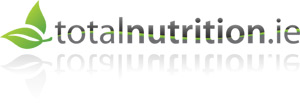Feeding children can be difficult at the best of times however when adding the dynamics of an adoption this can add further to the complexities. When a baby or child finally arrives at its new home parents may be somewhat anxious about how best to adapt the diet to Irish foods. In this article we will explore some of the issues parents might face and how best they can be handled.
Prior to moving the child from its birth country it is important to discover and explore the diet that the child has been fed on up to this point, also it is worth exploring the types of foods that are indigenous to the region hence gaining a greater knowledge on the types of food his or her parents would have eaten. For example if the region is primarily based on a vegetarian diet then the likely hood is that this child may thrive better on a similar based diet or with the very slow introduction of white meats/fish prior to introducing red meats. The key reason for this is that the enzymes required for the digestion of foods not indigenous to the child may be ‘switched off’; hence a slow introduction of new foods may be easier on the digestive system.
Where possible in the orphanage it is important to observe the routines that the child has been following whilst being in care, key areas are:
• How does the child handle utensils?
• Does she drink from a cup or a bottle?
• What is the consistency of the foods being served?
• Can she feed herself?
• When are meals served?
• How are the foods prepared?
• What does the child like and dislike?
During the transition period it is reported that the digestive system can be extremely upset with diarrhoea and vomiting common amongst children and babies. This is often due to the change of physical environment, food, water and can often be a result of antibiotic usage pre and post move. During this time of stomach upset the diet for a baby and child should be extremely plain, in a child that is weaned cook all fruits (apples, pears, berries) allowing for easier digestion, well cooked simple casseroles are also supportive. Rice, chicken, eggs, bananas, beans, and lentils are among some of the world’s most universal foods, and may be familiar in some form to your child. Gradually adding variety can ease the transition to a new diet.
With a baby, due to formula being the major source of nutrition, this can be slightly harder to manage initially. However like with any baby when sick for a short period of time reducing the ratio of formula to water and gradually building this up to being the recommended levels may support the babies digestive system. When the baby reaches weaning manage this according to stated recommendations however bring to mind the indigenous foods from the child’s birth country.
Linking back to upset stomachs due to potential antibiotic usage in this instance discuss with your pharmacist or local health food shop to get a supplementary probiotic suitable for the child’s age. These probiotics will support the digestive system whilst on antibiotics, allowing for recolinisation of the gut flora at a correct balance between the ‘good and bad bacteria’. This is important to help heal the symptoms of an upset digestive system, however it has also been shown to be supportive of the immunity as research indicates that 70% of our immunity comes from our gut hence helping it to heal is important to ensure the child does not catch other opportunistic bugs.
Ensuring your child has a nutritionally balanced diet is so important especially as we are seeing a rise in cases of diabetes and obesity. Be patient and never give up serving your child healthy options and encouraging them to try them – you will get there in the end.
Andrea Murray is a Nutritional Therapist (BSc Hons) and her business Total Nutrition is based in South Dublin. She gives targeted and personal nutritional consultations to those who wish to improve their health, increase energy levels, lose weight or manage an illness with the support of their diet. Learn more on www.totalnutrition.ie


